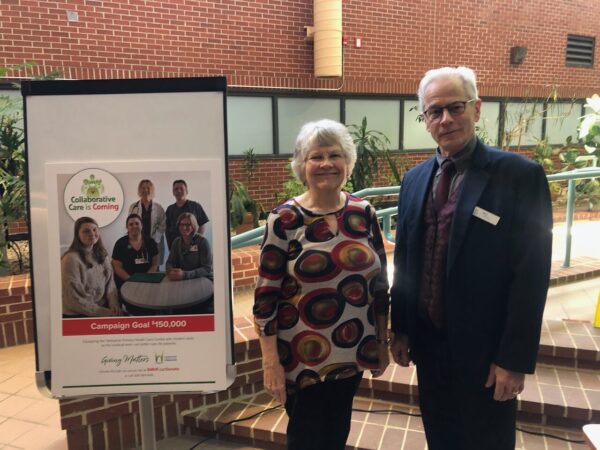CHMA is very happy to belong to an incredible network of campus and community stations all across Canada and the world. One of the ways we support each other is in syndicating shows. This simply means taking the extra step of creating your show and making it available for other stations to air to their local communities. This helps spread the word about under-represented music and culture and supports station that don’t have the means to create that content.
There are several ways this can happen, but it’s very, very important to stress that it’s a big commitment and necessitates consistency, organization and good communication.
The important thing is to know what you’re willing and able to commit. 1 x 1 hour show once per week is common. 1 X 2 hour show once pre week is equally as common. This will also help the station determine if they have space or want to invest the time. Typically, if your interested in syndicating, you’ll probably want to sign up indefinitely, or atleast a 1 year commitment.
Self-Hosting
You can self-host your episodes on a Google Drive. You’ll want to have a folder for episodes, a folder for social media, and perhaps a folder for your show image and bio. You’ll need to write a very nice introductory email and provide the link to the drive that is open for everyone to access.
CHMA Hosting
CHMA is very happy to host your show on our site and if you do a show with CHMA, you can provide a link to your Autopod account and upload episodes there for distribution. Reach out to station@chmafm.com and we’ll be very happy to get that setup.
NCRA Hosting
Syndicating your show can help reach a broader audience, it is an exciting thing to have your show played all over the country. If you are interested in this process we are happy to share some best practices:
!earshot Distro – How to get started
!earshot distro lets you upload your radio show at your own time and syndicate it to all of our stations for free!
You can sign up for !earshot to distribute your show. If you are an independent programmer fill out that form and we will get back to you after creating your account. If you are affiliated with a station they can create the account for you.
You can follow the NCRA’s video tutorial on how to upload here along with our handbook at the bottom of the same page.
Timing
Timing is extremely important in radio programming. You need to know when you’ll be able to have your episode available for the all other stations to program in time. The other stations will need to know when the show will be available and that time needs to strictly kept.
Production Tips
Length: Maintain a consistent duration for each episode, commonly 56-58 minutes in length with no Home Station ID. This allows stations to fit your show into their existing schedule with minimal adjustments.
Show Breaks: For a 2 hour show, divide it into segments (e.g., 3 different versions, the full 2 hours and 2 segments of around 56-58 minutes). You can name the segment “Part 1 of 2” etc.
Episode Labeling: Ensure your files are properly numbered and named. Everyone labels their episodes differently but please make sure it has at least two of these distinctive labels: title, episode number, date, and if applicable part 1 of 2.
On-Air things you might want to include
Let people know where the show is produced. For example, “This program is produced from Nanaimo, BC.”
Mention it’s syndicated, and provide details on where listeners can find more info. E.g., “This show is available to community and campus stations nationwide. Visit [yourwebsite.com] for details.”
Have a call to action, provide an easy way for listeners to get involved, like visiting a website, or following on social media.
Logs
Stations generally need the log, or playlist, that goes with the content of your show. The NCRA has a good template, but you can also use that of your host station.
https://docs.google.com/document/d/1_tZCU5PHmbzrmWjM6J7cR9o1TxC_vLTHvw2AWfKK0Yk/edit
Bios and Promotion
Host Bios: Share a brief bio of yourself as the host, make sure to include relevant experience and background. This helps stations promote the show effectively.
Show Trailer/Spot
If you want stations to start adding your show to their rotation, along with sharing the link to your program. A small trailer to promote and introduce programmers to your show is great to have. A 30 second trailer that captivates the essence of your show, it can have clips from your show over the years or it can be a scripted segment you create.
Once you are ready to promote your show to other stations, we suggest using the list at the bottom of this page, there you’ll find some stations looking for syndicated shows to play at their station, there you can add the 30 second trailer as well as the direct link from !earshot and a little about your show. Like how many times a week do you release your show, how long it is etc.
Contact in Emergency Situations
Contact Information: Provide clear contact details, including a primary email or phone number. Designate a contact person for technical or scheduling issues.
Emergency Procedures
Outline steps to take if you face last-minute technical issues or personal emergencies. Provide affiliates with instructions on what to do, whether it’s airing the backup episode or re-running a previous show. You can add these details in the bio of your Program.
Backup Show
Always have an evergreen episode (a non-time-sensitive show) ready to air in case of an emergency. This ensures continuity even if a new show can’t be delivered on time.
These are some of the best practices that we hope help you ensure smooth syndication and a positive experience for both you and the stations that play your show.














